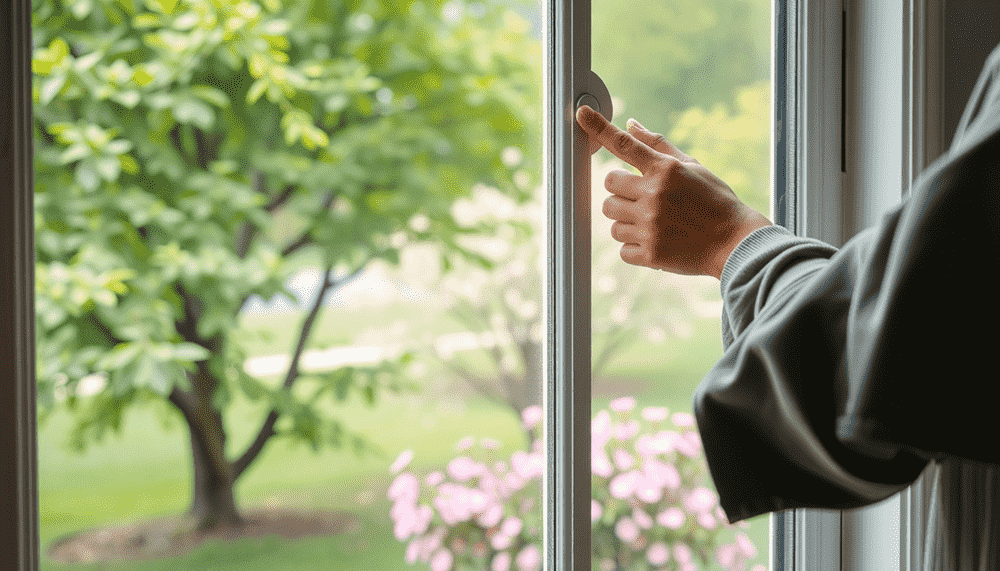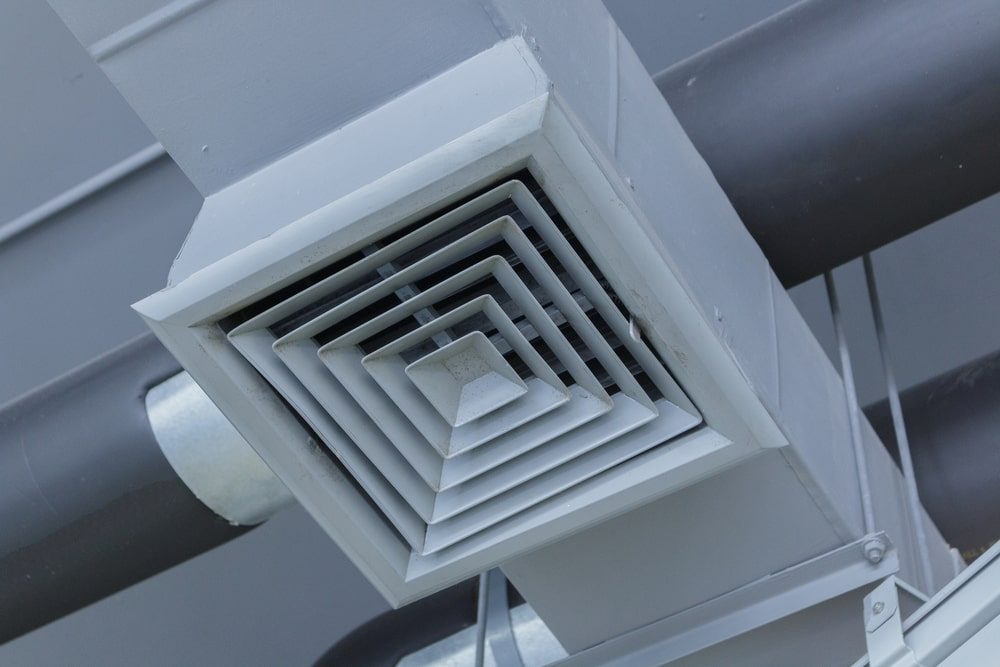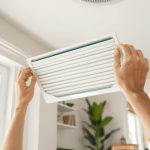Key Takeaways
- Check filters monthly during peak pollen and swap them on time so airflow and capture stay strong.
- Pair a properly rated HVAC filter with room-by-room help where you need it most, like bedrooms and home offices.
- Keep humidity in a healthy range and dry up moisture quickly to prevent secondary irritants.
- Seal leaky ducts and keep returns and supplies clear so clean air actually reaches the rooms that need it.

In Central Virginia, allergy season hits fast. One warm week and pollen coats everything! Preparing your Charlottesville home before peak season can make all the difference. From replacing HVAC filters early to managing humidity and sealing leaks, these proven steps from The Otter Guys help reduce allergens indoors, ease symptoms, and keep your system running efficiently all spring and summer.
What Allergy Season Looks Like In Charlottesville
Our area sees a full slate: tree pollen in late winter and spring, grass pollen as temperatures rise, and weed pollen in late summer into fall. Dry, breezy days push counts higher, and those are the days you feel the biggest difference between a home that is prepared and one that is not. You cannot stop pollen outdoors, but you can tighten how it moves through your home and HVAC system.
Start With The Filter Your System Can Actually Handle
Your air filter is the front line. Higher-efficiency pleated filters capture more pollen and fine dust, but the choice has to match your equipment and ductwork so you do not choke airflow. A practical approach for most homes is a quality-pleated filter in the middle range and a monthly check during peak season. If allergies are significant, ask us to measure static pressure and confirm whether your blower can support a higher-efficiency option without stressing the system. Portable room purifiers can help in bedrooms and nurseries, but they work best as a complement to the HVAC filter, not a replacement.
How Often To Change Filters During Peak Pollen
Running the system more means loading the filter faster. In spring and early summer, many Charlottesville homes do best with a 30–60 day change for 1-inch filters and a 60–90 day interval for deeper media cabinets, with monthly inspections either way. If you see a gray mat of dust on the upstream face, swap it. If you hear your return getting louder than usual or rooms feel stuffy, check it now rather than later. This one habit does more for indoor air during allergy season than any gadget. As a bonus, it helps efficiency, a point highlighted in the U.S. Department of Energy’s guidance on maintenance, which notes that clean filters protect airflow and reduce strain on equipment.
Small Upgrades That Make A Big Difference
A handful of low-cost tweaks pays off all season.
- Seal and balance ducts where you can reach them, so that clean, filtered air is not lost in the attic or crawlspace.
- Keep a couple of feet of clear space around the outdoor unit, so coil airflow stays strong.
- Install a deeper media cabinet if your system supports it to gain surface area without sacrificing airflow.
- Add a well-sized room purifier in the bedroom if symptoms are worse overnight.
Taken together, these small improvements multiply each other’s impact and make the rest of your efforts more effective.
Clean Habits That Actually Help
You do not need a hazmat routine to cut pollen load—just consistency. Guidance from the CDC on controlling asthma triggers supports practical steps like HEPA vacuuming, moisture control, and routine cleaning to reduce indoor allergens.
- Make a front-door plan with sturdy mats and a shoe drop to keep outdoor dust from spreading.
- Use a HEPA vacuum and run it slowly so it has time to capture fine particles.
- Launder bedding more often during peak weeks, and consider showering before bed, so pollen does not land on pillows.
- Use your HVAC’s circulate or low fan settings to keep air moving through the filter when counts surge.
Keep these habits steady for a few weeks, and you will notice less dust on surfaces and fewer flare-ups after high-pollen days.
Spring Maintenance: The Clean Start Your System Needs
Allergy season is the perfect moment to give the equipment a clean slate. During a spring tune-up, our techs verify airflow, clean the indoor and outdoor coils, confirm refrigerant performance, clear the condensate line, and install a fresh filter. This is also when we can spot leaky ducts, undersized returns, or other bottlenecks that make pollen days feel worse than they should.
If you want a simple plan that covers both ends of the year, our maintenance program includes a spring visit for cooling and a fall visit for heating. So, you are set before the first heatwave and the first cold snap. You can see what we check and schedule your spot on our AC maintenance page, which lays out the visit in plain language inside the service description.
Set It And Forget It: Simple Reminder Systems
Even the best plan fails if you forget the basics. Put the schedule on autopilot.
- Create monthly phone reminders labeled with your filter size so you buy the right one every time.
- Stick a small date label on the return grille, so anyone can see when the filter was installed and when it is due.
- If you use room purifiers, set calendar alerts for pre-filter cleaning and HEPA filter replacements based on the manufacturer’s estimates.
- Consider a filter delivery subscription timed to your home’s interval, so the replacement shows up before pollen peaks.
Once these reminders are in place, filter changes stop slipping through the cracks and your air stays consistently cleaner.
What Happens If You Skip It All
Ignoring filters and airflow during allergy season does not just feel worse; it costs money. As the filter loads, your system works harder to move air, which raises utility bills and strains components. Coils get dirty faster, temperature control suffers, and rooms stay clammy. That is the recipe for more dusting, more sneezing, and more repairs. Staying ahead of the simple stuff turns your HVAC into part of the solution instead of another source of frustration.
When To Ask For Help
If filters are clogging unusually fast, rooms feel uneven, or you suspect duct leaks, bring in a pro. A quick pressure and airflow check can reveal whether the system is fighting a hidden bottleneck. If a specific room is always the culprit, we can adjust ducts, rebalance the system, or discuss a small ductless solution for targeted relief without overcooling the rest of the house.
How We Helped Adam With His HVAC System
Here’s how we helped Adam prepare his HVAC system for allergy season.
“The tech that serviced my home was Micheal Alveraz. He was very helpful and helped guide me through what my problems were and how to keep my HVAC system properly maintained. Most importantly, I felt I could trust what he was saying, and he didn’t try to sell me nonsense to try and get more money from me. I would definitely recommend him. A lot of the other companies I have had come to my home are big scams, but I don’t get that feeling with Otter guys.”
Read the review here.
Call The Otter Guys
If you want cleaner indoor air and steadier comfort this allergy season, we are ready to help. The Otter Guys can set the right filter strategy for your system, perform a thorough spring tune-up, and fix airflow issues that make pollen days tougher than they need to be. Tell us what is going on via our contact page, and we will build a simple plan that works for your Charlottesville home.





